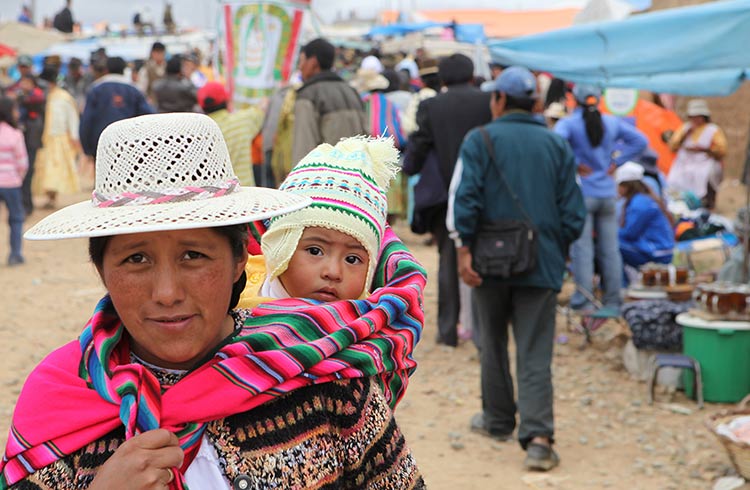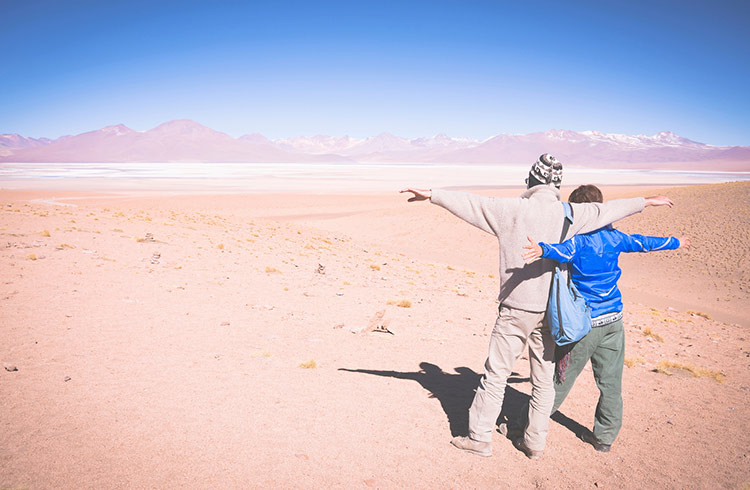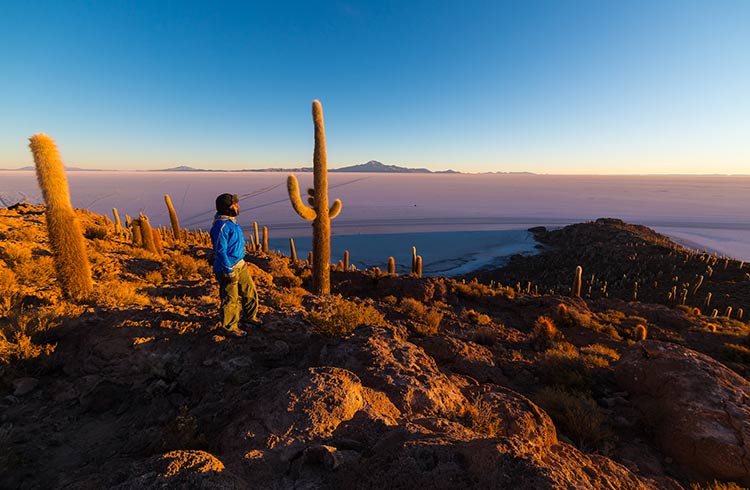A Beginner's Guide to Responsible Tourism in Bolivia
Where are the obvious opportunities for responsible travel in Bolivia? Ted Martens shares his thoughts on the pitfalls and potential for tourism to make a positive impact in Bolivia.
 Photo © iStock/1001nights
Photo © iStock/1001nights
After spending three weeks in Bolivia, I was both impressed and disappointed. Impressed by the perspective of a curious and intrepid traveler, seeing how much the country has to offer – amazing landscapes, adventurous activities, rich culture, and vibrant cities. But disappointed when it comes to responsible travel, as Bolivia has a long road ahead.
The Pitfalls
Let's start with the negative.
Let's Talk About Trash
You cannot visit Bolivia without immediately recognizing the country's trash problem. “We (Bolivians) prefer to throw our trash on the ground rather than in a bin – opening the bins gets our hands dirty,” according to my guide. Whether he was being sarcastic or serious, it appears as though the statement is true.
Trash is everywhere – in the cities, in the country, along the streets, along trails, in the bathroom, on the bus, etc. While some cities do have a municipal waste program, most citizens drive to the edge of town and drop their rubbish there. Nobody thinks twice about where they throw it.
Sure, many developing nations have waste problems, but Bolivia takes it to another level – and the tourism industry is an active culprit. I watched guides toss traveler waste out the window in some of the country's most attractive landscapes. And the concept of sorting trash (organic vs inorganic, recycling, etc) found so prevalently in Bolivia's neighbors... no chance.
The Issue With Popular Tourist Activities
A few of Bolivia's most sought-after activities stray far from the responsible travel ethos. For instance, in central La Paz, travelers can bribe guards to allow them access to a high security prison to get a glimpse of “life on the inside.” These trips also double as purchasing opportunities for the Bolivian drug of choice, cocaine (oddly enough, this whole operation is run by inmates, who use the tourist entrance fee, over US $100 per person, and the drug sales to further bribe guards, allowing inmates to continue to orchestrate organized crime and drug trafficking from the inside).
In a famous mining town in the south, Potosi, the popular excursion is a visit to a working mine. These mines are notoriously dangerous (over 8 million miners have been killed over the last 500 years), and nearly all tour operators give visitors the chance to blow up some dynamite during the visit.
Traveler safety and environmental impacts aside, a visit to the mines is intended to demonstrate the medieval conditions faced by miners, who rarely live more than 15 years beyond their first day at work. While miners do reap well-deserved benefits from tourist visits, the voyeuristic nature of mine and prison tours is unsettling, and certainly not responsible tourism.
The Potential
Okay, so Bolivia has its share of tourism challenges, but what country doesn't? Bolivia is also one of the most stunning, gorgeous, and unique places I have ever been to. The vibrancy of the world's highest capital city, La Paz, is invigorating and contagious.
Sustainable Tourism Opportunities
Popular and accessible sustainable tourism opportunities in the La Paz region include single or multi-day treks, technical climbing of 6,000+ meter peaks, and mountain biking the “world's most dangerous road”. Bolivia's jungle region is a frequent stop on many itineraries, and can include a stay with a community tourism project or the award-winning Chalalan Ecolodge.
Of course, no visit to Bolivia would be complete without a 4x4 tour of the Uyuni Salt Flats and the surrounding Southwest Circuit. While this region struggles with it's own share of environmental challenges, many operators have adopted “leave no trace” ethics, and compared to the rest of the country, the region is surprisingly litter-free. Uyuni is like no other place on earth – where else can you get a photo of your wife stomping you like a spider?!?!
The tourism potential for Bolivia is tremendous, and so far it is yet to be fully discovered. The country has the natural resources and friendly personality to become a leader in the responsible travel movement. But Bolivians need to get their act together if they hope to rival neighboring South American countries already capitalizing on eco-focused travelers.
Bolivia is still raw in many ways, so if you have an open mind and don't mind bumpy roads, now is the time to check it out. Just remember that your travel choices (activities, operators, accommodations, etc) do make a difference, so be sure to choose responsibly.
And don't throw your trash out of the bus window, even if your guide does!
Related articles
Simple and flexible travel insurance
You can buy at home or while traveling, and claim online from anywhere in the world. With 150+ adventure activities covered and 24/7 emergency assistance.
Get a quote

No Comments